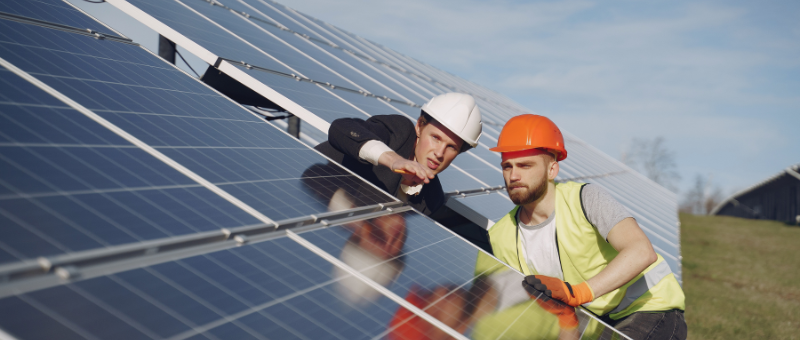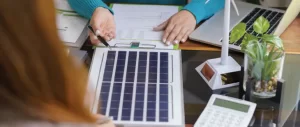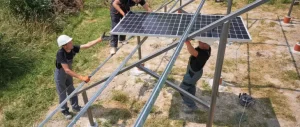How to Improve Solar Energy Panel Efficiency: Expert Strategies
In the quest for sustainable energy solutions, solar panels have emerged as a popular choice for generating clean, renewable power. However, to make the most of your solar energy system, it is crucial to maximize the efficiency of your solar panels. In this comprehensive guide, we will explore expert strategies to improve Solar Energy Panel Efficiency.
Understanding Solar Energy Panel Efficiency
Solar Energy Panel Efficiency refers to the percentage of sunlight that a solar panel can convert into usable electricity. Higher efficiency means more energy production from the same amount of sunlight. Factors that influence panel efficiency include the type of photovoltaic cells used, the quality of materials, and the overall design of the solar panel system.
Why is Solar Energy Panel Efficiency Important?
Maximizing Solar Energy Panel Efficiency is essential for several reasons:
- Increased Energy Output: More efficient panels produce more electricity, reducing the need for additional panels and maximizing energy generation from limited space.
- Cost Savings: Higher efficiency panels can lower the overall cost of solar energy by reducing installation and maintenance costs.
- Environmental Impact: Efficient solar panels make better use of the sun’s energy, contributing to a reduction in carbon footprint and reliance on fossil fuels.
Expert Strategies to Improve Solar Energy Panel Efficiency
Invest in High-Efficiency Panels
The first step to enhancing Solar Energy Panel Efficiency is to choose high-quality, high-efficiency panels. Panels with high-grade photovoltaic cells, such as mono-crystalline cells, offer superior performance and power output. These cells have a higher efficiency rate compared to polycrystalline or thin-film cells, making them an excellent investment for long-term energy production.
Optimize Panel Orientation and Tilt
The orientation and tilt of your solar panels are crucial for capturing the maximum amount of sunlight. Panels should be oriented towards the equator (south-facing in the Northern Hemisphere and north-facing in the Southern Hemisphere) to maximize sun exposure. The tilt angle should be adjusted based on your geographic location and the season to ensure optimal exposure throughout the year.
Regular Cleaning and Maintenance
Keeping your solar panels clean is essential for maintaining high efficiency. Dirt, dust, and debris can block sunlight and reduce the amount of energy your panels can produce. Regular cleaning, especially in areas with high pollution or dust, can prevent this build-up and ensure that your panels are operating at their best.
Minimize Shading
Shading is one of the most significant factors that can reduce Solar Energy Panel Efficiency. Even partial shading of a single panel can significantly decrease the overall energy output of your system. Ensure your installation site is free from any obstructions like trees, buildings, or other structures that could cast shadows on the panels. Additionally, consider using microinverters or power optimizers, which can minimize the impact of shading on the overall system.
Use High-Quality Components
The efficiency of your solar energy system is not only dependent on the panels themselves but also on the quality of other components, such as wiring, inverters, and mounting systems. High-quality wiring can reduce energy loss during transmission from the solar panels to the inverter and battery storage. Efficient inverters, which convert DC electricity from the panels into usable AC electricity, play a critical role in overall system performance. Using robust mounting systems ensures that panels remain securely in place, even in harsh weather conditions.
Install a Solar Tracking System
Solar tracking systems can significantly increase Solar Energy Panel Efficiency by adjusting the position of the panels throughout the day to follow the sun’s path. This maximizes the amount of sunlight captured and can lead to a substantial increase in energy production. While more expensive than fixed systems, tracking systems can offer a good return on investment by boosting overall efficiency.
Implement Monitoring Tools
Real-time monitoring tools can help you track the performance of your solar panels and identify any issues promptly. These tools can provide insights into energy production, system health, and efficiency, allowing for immediate corrective actions if performance drops. Regular monitoring ensures that your system operates at peak efficiency and can help in scheduling maintenance and cleaning.
Optimize Temperature Control
Solar panels can lose efficiency when they overheat. Installing cooling systems or ensuring good ventilation around your panels can help maintain optimal operating temperatures. This is particularly important in hot climates, where excessive heat can reduce the performance and lifespan of solar panels.
Regularly Update and Upgrade Your System
Technological advancements in solar energy are continuous, leading to more efficient panels and systems. Regularly updating and upgrading your solar energy system can help you take advantage of these advancements. This could include upgrading to more efficient panels, inverters, or incorporating new technologies like bifacial panels that capture sunlight on both sides.
Improving Solar Energy Panel Efficiency is a multifaceted approach that involves choosing the right panels, optimizing installation, regular maintenance, and using advanced technologies. By implementing these expert strategies, you can maximize your energy production, reduce costs, and contribute to a more sustainable future. Whether you are a homeowner, business owner, or solar energy enthusiast, focusing on efficiency can help you make the most of your solar energy investment.




